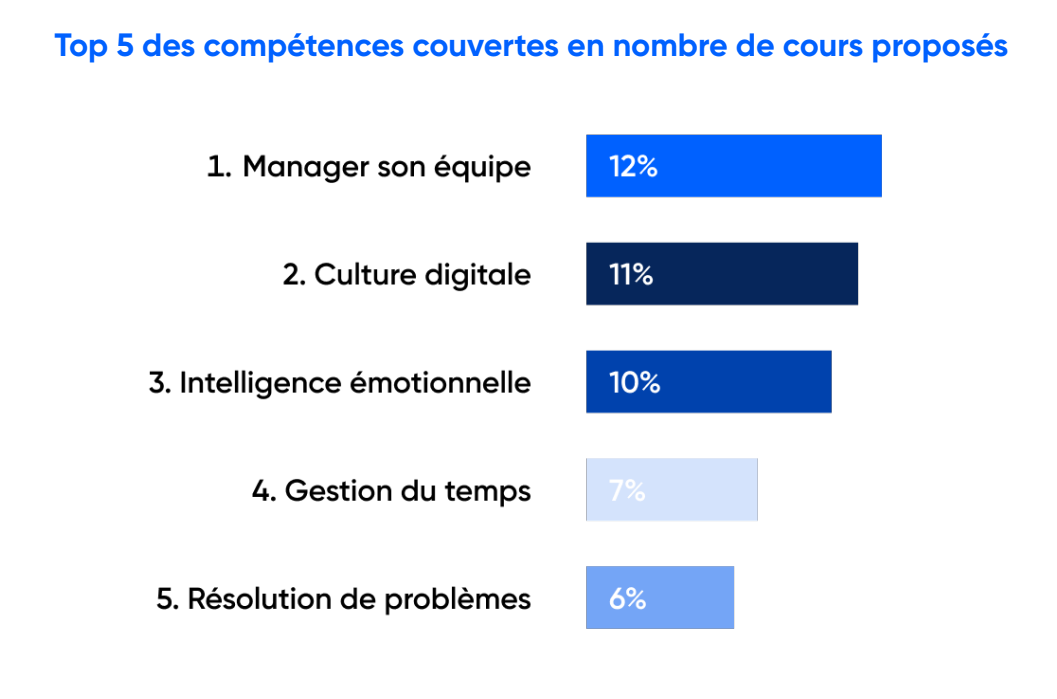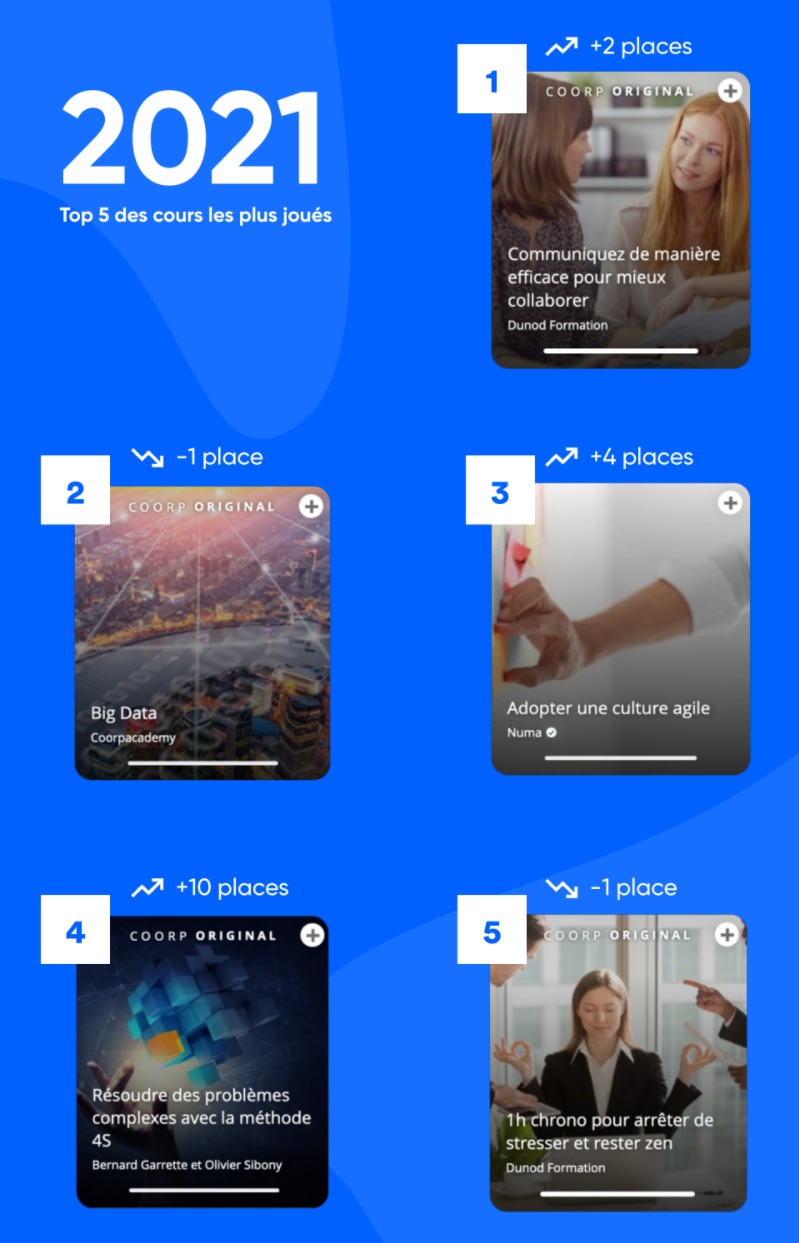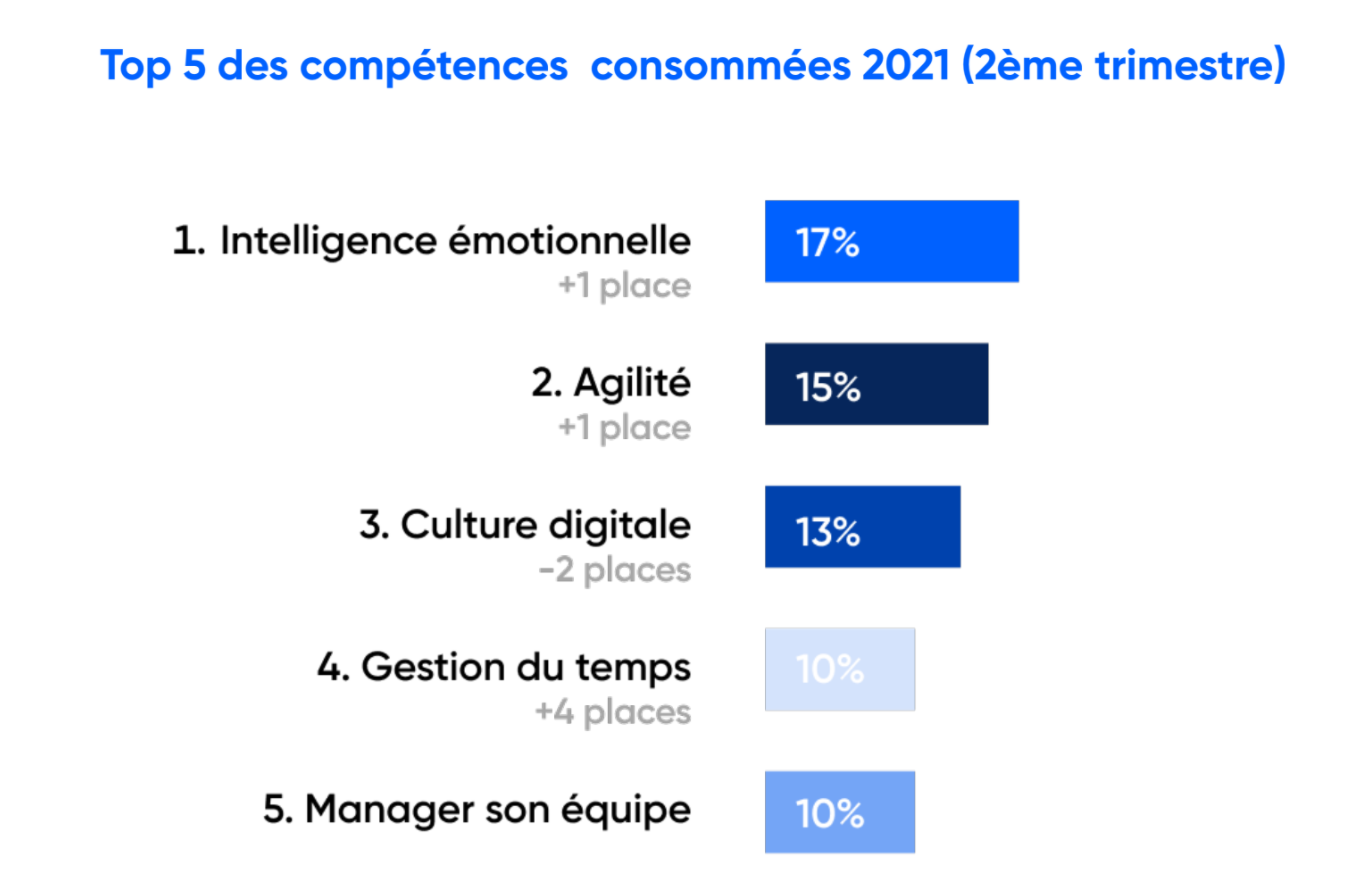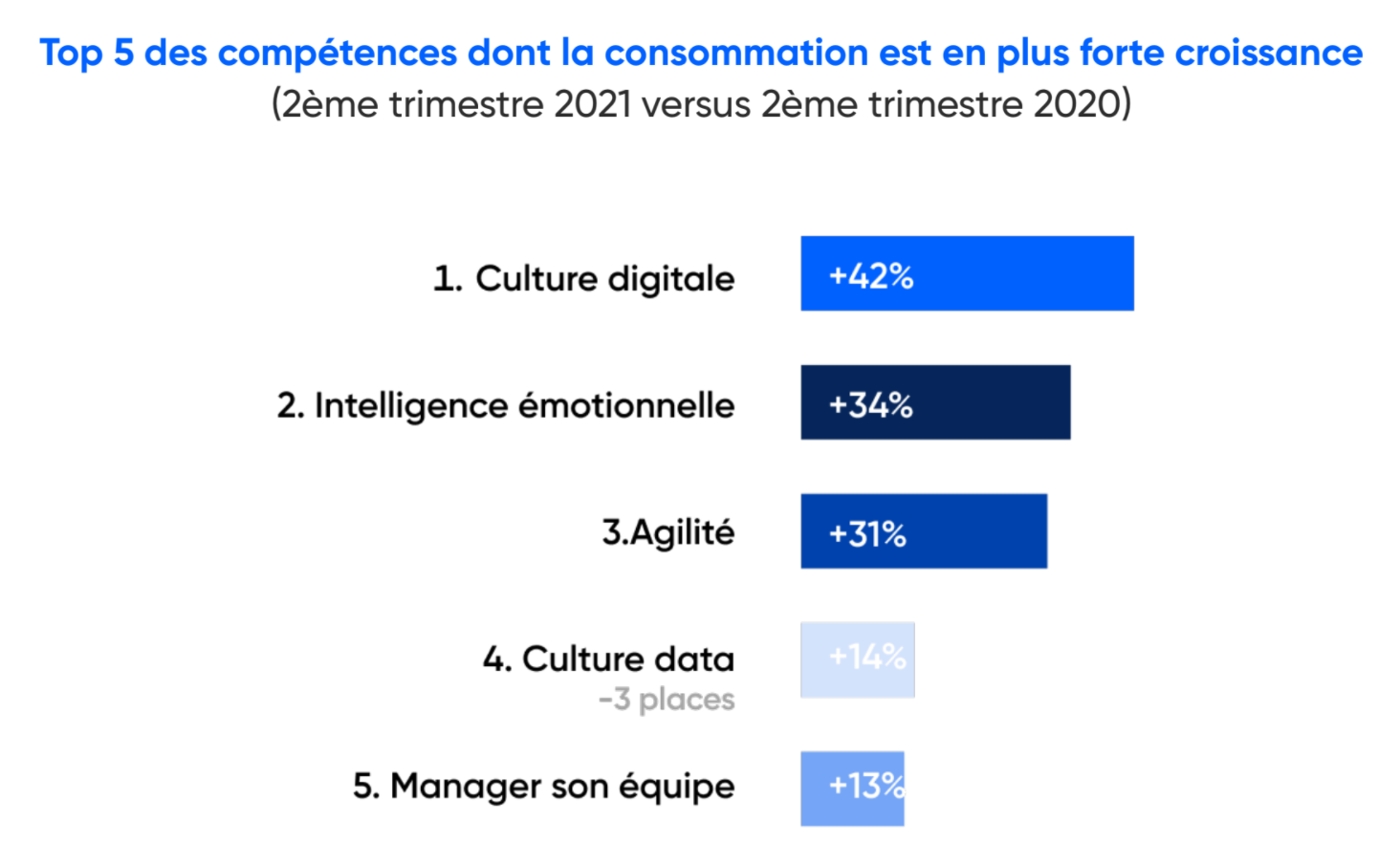It is Friday afternoon, and like every week, you log on to your e-learning platform. You notice a notification:
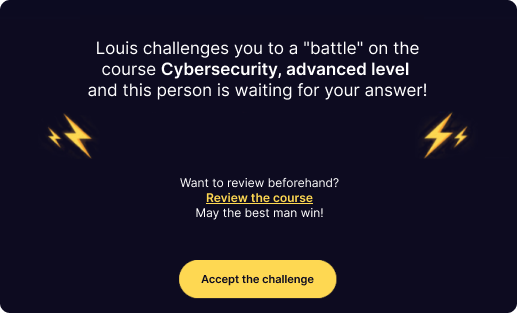
Since your company has implemented a digital learning solution to train on soft skills, you and your friends in the open space have taken to challenging each other on different courses. Indeed, this platform allows users a gamified learning experience, where answering correctly makes learners win lives and users can send each other battles to test themselves on different topics! This platform has really motivated you to learn on a regular basis, and you find it more entertaining to test your knowledge on a subject by interacting with your peers, especially as it helps you concentrate on retaining the course content. In fact, there have been several occasions when you’ve talked about it together during coffee breaks, talking about information you’ve learned in the course or comparing your results. Since you started on the platform, you have reached the Coach level on most of the courses, so you can help your peers on certain topics.
You decide to click on the notification to start the battle. You have reviewed some of the information in the course beforehand, by doing a 5 minute microlearning on each chapter of the course. Now that the battle is on, it’s up to you to win!
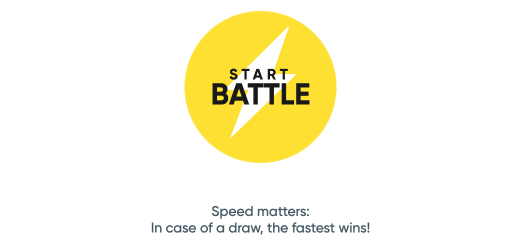
6/6. You win the battle by the skin of your teeth. Louis also had 6 correct answers but you were quicker to answer the questions! Luckily you had revised, which surely ensured your victory. You hurriedly ask your colleague for a coffee break to debrief.
“So Louis, what did you think of this course?”
“Haha well frankly, I would know from now on that whenever I use a network connection that is not my company network, I would have no control over what is connected to my device. I used to use Wifi on the train for example, but it’s better to avoid using public Wifi apparently.”
“Yeah, it’s true that when you’re on the move you can forget these basic rules and be more flexible! You should talk to the IT department, they could install a VPN software that will allow you to connect from an external network!”
“You’re right! You’ve really done your homework…”
“You should also start studying because next week, a Massive Battle is being organised on the platform!”
You return to your desk and before going back to work, you decide to send another battle to another colleague, in order to prepare yourself for the Massive Battle next week.
What do researchers think?
A recent study by researchers at the University of Washington found that active learning, based on collaboration and interaction, had a positive effect on students’ academic performance.
Thus, the study found that the absence of active learning can actually harm a student’s chances of academic success. For example, as a result of the experiment, it was shown that students in traditional lecture-based education were 1.5 times more likely to fail than those in courses with active learning.
What to remember
Collaborative learning in business is a form of learning that links the ability to learn with and from others. To foster collaborative learning, it is important to allow exchanges and sharing between peers, in order to spread knowledge. Collaborative learning is not only team building, it is also more efficient. It allows employees to learn continuously, through their daily exchanges and feedback.
How does this work at Coorpacademy by Go1?
 At Coorpacademy, to encourage collaborative learning, we encourage learners to challenge each other and test their new skills in a very interactive and fun way. That of the battles. This element of play on the platform in duel question mode allows each learner to challenge the person of their choice on the course of their choice! The learner who answers the most questions correctly – or the fastest in case of a tie – wins the Battle, 5 bonus points, and a better knowledge of the course.
At Coorpacademy, to encourage collaborative learning, we encourage learners to challenge each other and test their new skills in a very interactive and fun way. That of the battles. This element of play on the platform in duel question mode allows each learner to challenge the person of their choice on the course of their choice! The learner who answers the most questions correctly – or the fastest in case of a tie – wins the Battle, 5 bonus points, and a better knowledge of the course.
As part of our platform animation programme and to encourage learner engagement on the platform, the battle can also become massive! In the Massive Battle, all or some of the learners on the platform participate and they are all challenged by one of them. This feature allows HR and training teams to animate the training platform to keep learners engaged!

